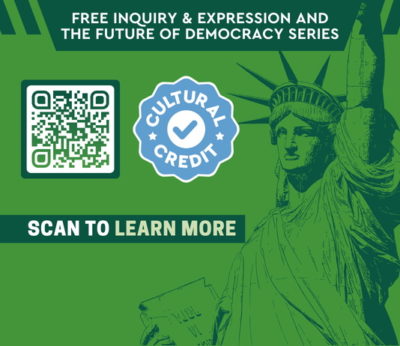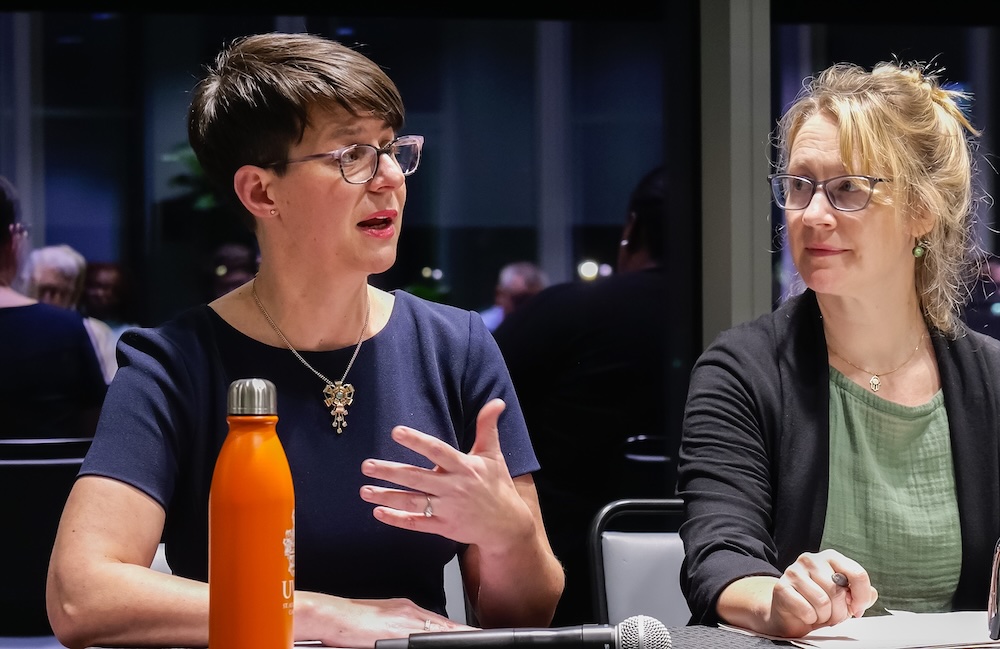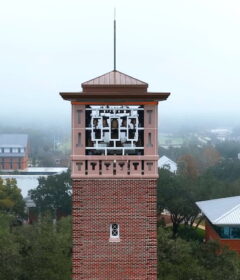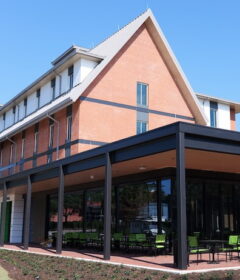Free Inquiry & Expression and the Future of Democracy Series

Why are America’s engagement and leadership essential for global stability, security and the promotion of liberty?
What does institutional neutrality really look like, and what does it mean to Stetson?
Those are among the questions addressed during Stetson’s Free Inquiry & Expression and the Future of Democracy Series, which explored timely and pressing topics throughout the spring semester.

The series included a Presidential Inauguration watch party, “Things We Don’t Talk About at Dinner: Race Edition,” “Debating American Global Leadership” and “A Panel on Institutional Neutrality,” among others.
“We want to be an institution that students look at as the place where they can learn how to have difficult conversations in a civil manner. That’s really important to Stetson,” explained John Downey, PhD, vice president of Campus Life and Student Success.
Recent affirmations of the university’s formal commitment to free expression can be traced back to spring 2019, when faculty and staff from across Stetson — in DeLand and at the College of Law in Gulfport — drafted a statement of principles of free expression, which was approved by the university’s Board of Trustees.

“Since that time,” explained Provost Elizabeth Skomp, PhD, “as academic freedom and freedom of expression have become especially contentious on college and university campuses, Stetson has been recognized for our unwavering commitment to civil discourse and free expression.”
Last July President Christopher F. Roellke, PhD, joined 70 other college presidents of diverse institutions nationwide to advance higher education’s pivotal role in preparing students to be engaged citizens, as well as to uphold free expression on campus. The commitments were made through College Presidents for Civic Preparedness, a consortium designed by the presidents and convened by the Institute for Citizens & Scholars.
Further, Stetson last summer participated by invitation in the inaugural Academic Freedom Institute at the University of Chicago, where universities were tasked with identifying their institutional structures for academic freedom and developing ongoing plans for embracing both free speech and inclusive excellence.
Those activities made the timing during the spring semester especially appropriate for the series, Skomp said, commenting, “There is no time like the present to reaffirm our commitment. We’ve been planning this programming since last summer.”
Downey points to collaborations that are bringing insight and thoughtful discussion to the campus. Among the partners are Stetson’s Center for Community Engagement and the Alexander Hamilton Society, a student organization affiliated with the national nonpartisan, not-for-profit national organization that seeks to identify, educate and launch young men and women into foreign policy and national security careers.
Learn more on the Free Inquiry & Expression and the Future of Democracy Series website.


